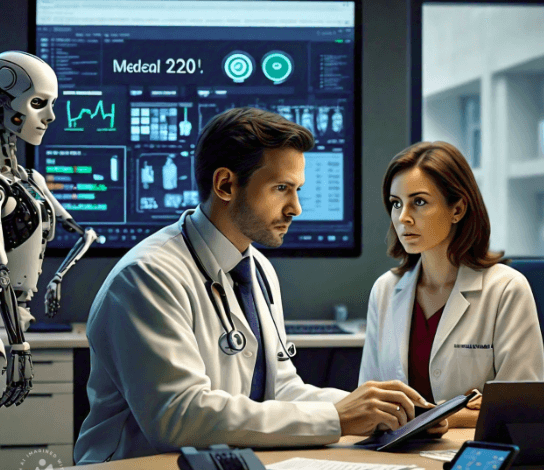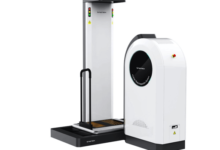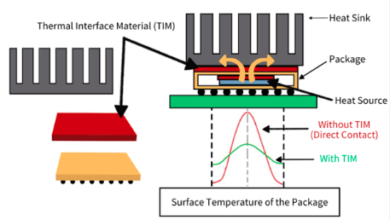Revolutionizing Healthcare with AI-Powered Medical Coding Automation

In the dynamic world of healthcare, accuracy and efficiency are paramount. Imagine a system where coding errors are minimized, processing times are cut in half, and healthcare providers can focus more on patient care rather than administrative tasks. This is the promise of AI-powered medical coding automation. In this comprehensive guide, we’ll explore how artificial intelligence is transforming medical coding and why it’s a game-changer for healthcare professionals.
Understanding Medical Coding Automation
Medical coding is the backbone of the healthcare billing process. It involves translating medical procedures, diagnoses, and services into universal codes. These codes are essential for billing insurance companies and maintaining accurate patient records. Traditionally, this has been a labor-intensive task prone to human errors. However, with automation, this process becomes more streamlined and accurate.
Medical coding automation leverages sophisticated algorithms and machine learning to assign codes to patient encounters. This eliminates the need for manual coding, reducing the risk of errors and speeding up the billing process. Automated systems analyze vast amounts of data quickly and accurately, ensuring that healthcare providers receive timely payments for their services.
The Role of AI in Medical Coding
Artificial intelligence (AI) is the driving force behind medical coding automation. AI systems are designed to learn from data, recognize patterns, and make decisions with minimal human intervention. In medical coding, AI can analyze clinical documentation, identify relevant information, and assign appropriate codes. This not only enhances accuracy but also significantly reduces the time required for coding.
AI-powered coding systems use natural language processing (NLP) to understand and interpret clinical notes. NLP enables the system to comprehend medical terminology, context, and nuances in the documentation. By doing so, AI can accurately assign codes, even for complex cases, thereby improving the overall quality of medical records.
Benefits of Automating Medical Coding
The integration of AI in medical coding offers numerous benefits for healthcare providers. Firstly, it enhances accuracy by reducing human errors. Accurate coding ensures that healthcare providers receive the correct reimbursements and avoid potential legal issues. Secondly, automation speeds up the billing process, leading to faster payments and improved cash flow.
Another significant benefit is cost reduction. By automating coding tasks, healthcare facilities can reduce labor costs associated with manual coding. Additionally, automation minimizes the need for extensive training and retraining of coding staff, resulting in further cost savings.
Improving Efficiency with Medical Coding AI
Efficiency is a critical factor in healthcare operations. AI-powered medical coding systems streamline the coding process, enabling faster and more efficient handling of patient records. Automated systems can process large volumes of data in a fraction of the time it takes for manual coding, resulting in quicker billing cycles and reduced administrative burdens.
Furthermore, clinical coding ai can operate 24/7 without fatigue, ensuring continuous processing of coding tasks. This round-the-clock operation means that healthcare providers can maintain up-to-date records and billing information, ultimately enhancing the overall efficiency of the healthcare system.
Enhancing Accuracy with AI
Accuracy is paramount in medical coding, as errors can lead to claim denials, revenue losses, and compliance issues. AI-driven coding systems significantly enhance accuracy by eliminating human errors and inconsistencies. These systems are programmed to follow coding guidelines and regulations meticulously, ensuring that all codes are assigned correctly.
AI’s ability to learn and adapt over time further enhances its accuracy. Machine learning algorithms continuously analyze data and improve their coding accuracy based on feedback and new information. This adaptive learning capability ensures that AI systems remain up-to-date with evolving coding standards and regulations.
Reducing Administrative Burdens
Medical coding is a time-consuming and labor-intensive task that often diverts healthcare professionals’ attention from patient care. By automating coding tasks, AI frees up valuable time for healthcare providers, allowing them to focus on delivering high-quality patient care. Reduced administrative burdens also contribute to higher job satisfaction among healthcare staff.
Additionally, automated coding systems generate detailed reports and analytics, providing valuable insights into coding patterns, errors, and opportunities for improvement. These insights enable healthcare providers to optimize their coding processes and enhance overall efficiency.
Ensuring Compliance with AI
Compliance with coding regulations and standards is crucial for healthcare providers. AI-powered coding systems are designed to adhere to coding guidelines and regulatory requirements meticulously. These systems are continuously updated with the latest coding standards, ensuring that all codes are assigned accurately and in compliance with regulations.
By ensuring compliance, AI systems help healthcare providers avoid potential legal issues and penalties associated with coding errors. This peace of mind allows providers to focus on their core mission of delivering exceptional patient care.
Overcoming Challenges in Medical Coding Automation
While the benefits of AI-powered medical coding automation are clear, there are challenges to consider. One significant challenge is the initial cost of implementing AI systems. However, the long-term cost savings and efficiency gains often outweigh the initial investment.
Another challenge is ensuring data security and privacy. Healthcare providers must implement robust security measures to protect patient data and comply with regulations such as HIPAA. AI systems must be designed with strong encryption and access controls to safeguard sensitive information.
Future Trends in Medical Coding AI
The future of medical coding lies in further advancements in AI and machine learning. Emerging trends include the integration of predictive analytics, which can forecast coding patterns and potential issues. Additionally, AI systems are expected to become more intuitive, with enhanced NLP capabilities for even greater accuracy.
Another significant trend is the use of AI for real-time coding during patient encounters. This will enable healthcare providers to capture and code information instantly, reducing delays in billing and improving overall patient care.
How to Get Started with Medical Coding AI
Integrating AI into your medical coding processes requires careful planning and execution. Start by assessing your current coding workflow and identifying areas where AI can add value. Next, research and select a reputable AI coding solution that aligns with your organization’s needs and budget.
Training and support are essential for a successful implementation. Ensure that your staff receives comprehensive training on using the AI system and understands its capabilities. Ongoing support from the AI solution provider will help address any challenges and ensure smooth operation.
The Road Ahead for AI in Healthcare
AI-powered medical coding is just the beginning of a broader transformation in healthcare. AI has the potential to revolutionize various aspects of healthcare, from diagnostics and treatment planning to patient engagement and administrative tasks. By embracing AI, healthcare providers can deliver better patient outcomes, improve operational efficiency, and stay ahead in an increasingly competitive industry.
Conclusion
The integration of AI in medical coding automation represents a significant leap forward for the healthcare industry. By enhancing accuracy, efficiency, and compliance, AI-powered coding systems offer immense benefits for healthcare providers. As technology continues to evolve, the potential for AI to transform medical coding and other aspects of healthcare is boundless.
Healthcare providers must stay informed about the latest advancements in AI and consider adopting these technologies to remain competitive.





